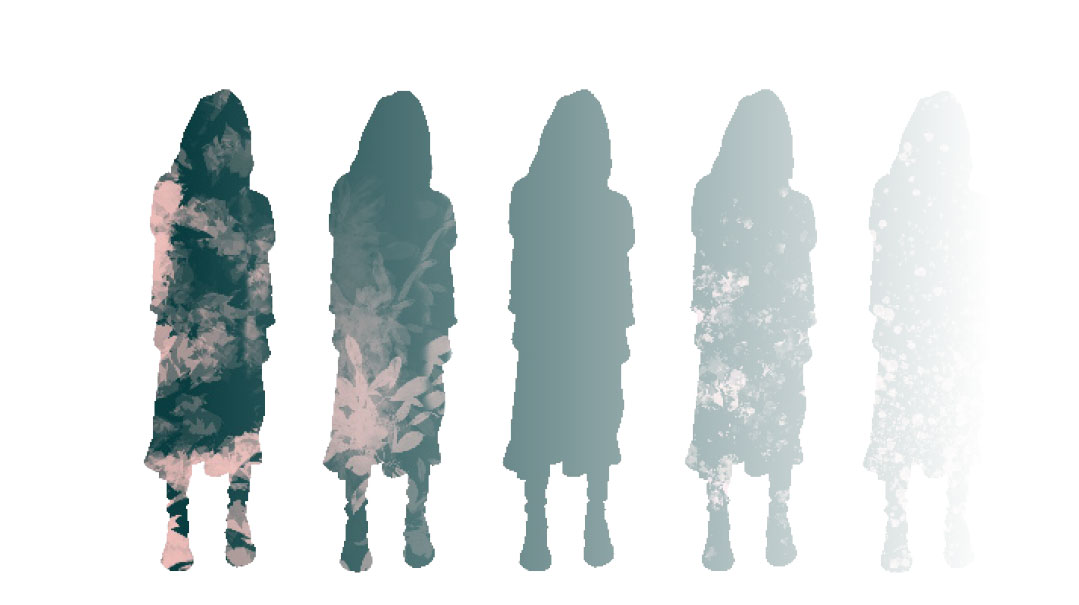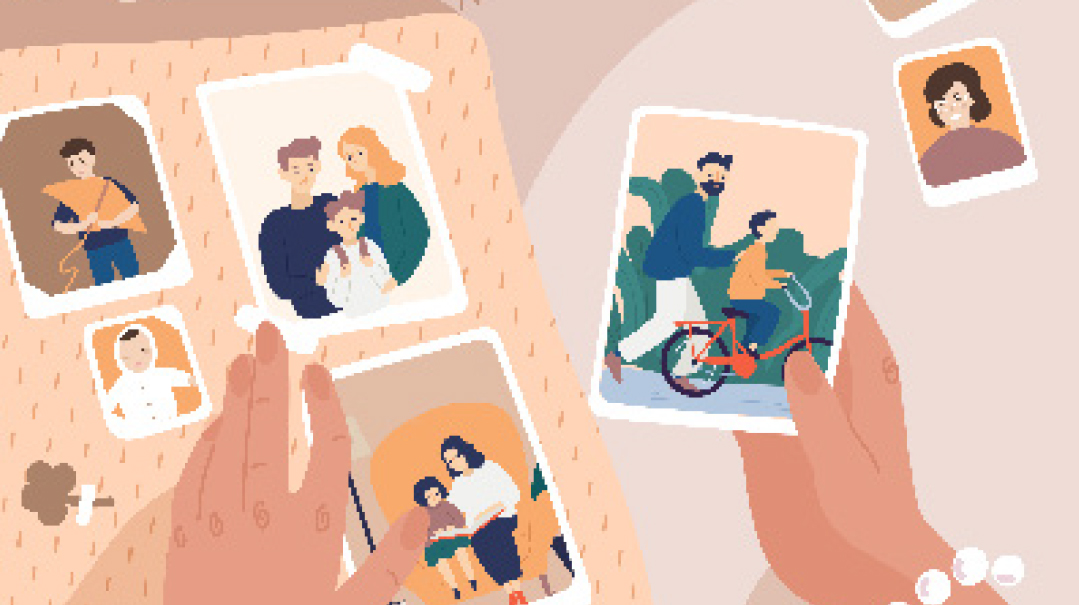Pain, Pleasure, Repeat

The results of that tube will determine whether or not his brain will be affected for life, and you’ll desperately daven, in a way that you’ve never davened in your life

H
ere are some things they don’t tell you about being a mother.
They don’t tell you that every morning, your heart will hurt. Each child will take a piece of your being as they leave that front door. You’ll want them gone, want them to each be entertained and taken care of so you can have a few hours’ break, and then you’ll wonder if it’s just you or if every mother feels this way.
Every day, you’ll attempt to give them everything; to them, even the world will never be enough. Their emotional tanks will feel like a bottomless pit, and you won’t allow yourself the indulgence to believe that those pits will ever be filled.
It’ll be a constant struggle to move that self-critical part to the back burner, to let the negativity slide off of you, to remind yourself that yes, you’re indeed a good mother; that yes, you’re trying your best; that yes, for now, that’s good enough.
H
ere are some things they don't tell you about being a mother of a child with measles.
You won’t be nervous that your baby is running a fever for a few days. This is your fourth, so you won’t be that paranoid mom running to the doctor because of a cold and cough.
On the third morning, his fever will spike, and his mouth will be covered in blisters. He’ll refuse to nurse, moaning in pain. You will desperately hope that he will latch on; he’ll push you and sustenance away.
Because it is Shabbos, you won’t be sure what to do. You’ll carry his limp body to a Hatzolah member, who tells you it’s pikuach nefesh. He’ll radio for an ambulance as children and then adults congregate, alternately gawking and gossiping. This will only be the beginning of your lives becoming a public spectacle.
The ambulance will arrive, they’ll ask you a million questions as your child grips onto your clothing with clammy hands. You won’t want to repeat the same responses to the various medics again and again, won’t want to ride backward on an uncomfortable stretcher with your child’s head upon your chest. You’ll wish it all away, shut your eyes tight like your baby’s, imagining a normal day, nursing him on the couch, his gurgles and games and peek-a-boo feedings. Reality will hit, and through glassy eyes, you’ll watch his sweaty back rise and fall, rise and fall, much too frequently.
Upon arrival, nurses will whisk you into the isolation room. Standing next to your child’s crib, you’ll wish beyond anything that he’d verbally protest. All those previous, urgent wishes for this once-colicky baby’s crying to stop suddenly seem moronic. Cry, cry, please just cry, you’ll silently beg.
You’ll watch as they poke him and prod him, you’ll coo to him gently as the spinal fluid fills a tube. Because every second is pressing, medical staff won’t even be concerned about kicking you out of the room. The results of that tube will determine whether or not his brain will be affected for life, and you’ll desperately daven, in a way that you’ve never davened in your life.
As the hours in the hospital turn into days, your child will remain limp and unresponsive, breathing approximately a million times a minute, his lungs filled with a secondary infection that makes every breath a struggle. He’ll stare at you, with those brilliant eyes that now appear vacant, and because he’s only 11 months, it’s impossible to know if this means his cognition has been affected. You’ll hold him, sing to him, and if it’s a good day, maybe he’ll moan from pain. Otherwise, there will be no response at all.
Days will warp and warble like metal under the sun, and you’ll experience it as a Möbius strip, no longer certain of linear progressions. Time will be quantified in chunks, in doctors’ shifts. There will be no sense of hours, only of when tests results are ready, of changes in oxygen saturation levels.
Your baby’s fever will soar so high that no medication will bring it down. You’ll administer cold compresses all over his body, but as soon as the towel touches his skin, it will have to be flipped. The side that was against his stomach will feel hot upon your hands.
You’ll feel alone, despite the visitors with their scrubs and masks. The only person who alleviates the sense of abandonment will be your own mother. With a primal ache, you’ll cling to her. Her mothering gives you the strength to mother, her nurturing allows you to nurture your own. She will hug you, tell you everything will be okay, she’ll fret, and cry, and laugh gallows humor with you, and that will give you enough strength to keep going.
H
ere are some things they don't tell you about being a mother who leaves her child in the isolation room.
Ostensibly you’ll need another coffee, so you’ll leave the room, and leave your child. Everyone will know it’s just an excuse, but no one will verbalize it. Although a part will want to remain, sanity demands leaving the solitary confinement that is your current world.
You’ll walk through the hospital corridors, the walls will seem to shift beneath your gaze. The world will be spinning faster than you remember. You’ll realize that everything morphed into Technicolor while you were gone. There will be regular people, sick people, medical people; all will be speaking too quickly, too normally, for you to comprehend.
The cashier will ask you simple questions; they’ll sound like gibberish. You’ll ask him to repeat himself three times until finally, he’ll just give up, annoyed. You fervently want to tell him about your baby. A rational voice tells you that you’re in a hospital, your child is just another number among many sick patients.
As you make your way back to the room, you’ll see helium balloons: “Congratulations” and “It’s a Girl” bobbing gently toward the ceiling. Yes, yes, they nod in agreement, this is what normal looks like. In place of air, jealousy will fill you, a raging, ugly thing. And then in its place, sympathy will come, for the naive fathers, laden with packages for their newborn child who will certainly bring varying degrees of pain.
You’ll telepathically send your pathos for all they don’t know about parenting, and then suddenly pause, aware of the web of thoughts that has distracted you from thinking about your son, even momentarily. What kind of mother are you? Guilt will appear, conquering all.
H
ere are some things they don't tell you about being a mother coming home from the hospital for a respite.
Chesed girls will arrive at the hospital room, shy and magnanimous, and you’ll greet them with relief and pain. You’re literally their good deed of the day. Your pride will take a back seat to desperation; your body and mind crave nothing more than a night undisturbed by beeping machines and taking temperatures and giving your child a nebulizer yet again.
As you describe what they can expect from the night, you’ll feel detached from reality, as though you’re floating slightly above the ground. You’ll ask: Who’s this zombie woman? Who’s that baby lying there?
You’ll close the door behind you, scrub down with antiseptic in the antechamber, disbelieving the very steps you take. The car ride will feel surreal.
Only when you arrive back to the house does it hit you that either way, you lose. Because the entire time you’re home, there to rest, you’ll want nothing more than to be back at the hospital.
Scouring stupid articles online for hours on end will seem like a good distraction, and indeed, it will dull the pain temporarily. But you’ll learn that ultimately, it won’t make the ache go away. Still, you’ll remain, staring at the screen that draws you to it, not knowing where else to turn.
You’ll know what you should be doing, the Tehillim beckons, but the words feel dull and hollow upon your tongue. How many times can a person complete Sefer Tehillim in one week? You want to do something, so you’ll switch around the furniture in your house, hoping this will make you feel better. It won’t.
The house will watch you walking around aimlessly, begging you to care for it. You’ll listen to the pleas of floors that are desperate to be mopped, attempting to inject some normalcy in your day. Soon you will realize there is no longer any normal. It’ll take you two and a half hours for a job you generally complete in 20 minutes.
You’ll walk back and forth, back and forth, searching for the floor cleaner, forgetting why you’re here, wondering how on earth you got to this place in the first place. Here being a mother, alone in her house, as her child struggles for breath on the other side of the city.
Neighbors and friends on the street will tell you to “be strong,” and you’ll give a tight smile as your eyes remain quizzical, for you won’t have any idea what that even means. They will comment on your emunah and positivity, and you wonder if that’s because you aren’t breaking down crying in the canned goods aisle.
One night, your three-year-old daughter will be upset, completely inconsolable. Certain one of her older brothers is bothering her, you’ll come in, sit next to her. As you push away the matted sweaty hair from her forehead, she’ll take deep breaths, hiccup a few times, and finally settle down enough to tell you what’s wrong.
“I miss the baby. I want him to come home.”
You’ll nod, afraid to say anything more than “Me too,” because you don’t want the children to be scared when they see you cry. They’ve seen enough tears, and “be strong” resonates so loudly in your ears, it will outshout your belief that sharing emotions with children is the healthier route to go.
H
ere are some things they don't tell you about being a mother when your child is still in the hospital.
People will send meals, not knowing it’s the only real food you’ve eaten all week. They’ll tell you not to think about it, it was nothing; to them, it probably was, although to you it will be everything.
You’ll feel surrounded by invisible strands of love, and knowing others have you in mind will serve as a source of strength. You’ll still be tasting the flavors mixed with care when you return to the hospital, with its cafeteria style food and vending-machine junk.
As you walk around the hospital, you’ll think of your friend whose child died of SIDS. You’ll remember how she sat there, describing the night before, her regret at not giving her baby that one final bath.
This conversation will replay itself in your head over and over as you wait on line for yet another cup of coffee, guiltily wondering if you should go back to the ICU to sit with your son. Will this be something you’ll tell others, of your regret at those moments you couldn’t have known would be the last?
You’ll see things that remind you of him — a baby’s rattle, a stroller, a big bouncy ball — and tear up. A part of you will know he’s only two floors away, but another part of you will believe that soon he’ll be gone.
During the day, you’ll return for a few hours to be with your other children, and the son you have a soft spot for — the nose dripping, spacey, brilliant child, whose shirt is inevitably misbuttoned, who knows exactly how to push your buttons — will yell and scream and rage at you. You’ll be filled with fear and maybe even believe him that indeed, everything is your fault.... The fact that your baby is in the hospital, the fact that his milk spilled, the fact that you don’t know how to keep your children’s world safe and perfect and pain-free.
In the dead of the night, with your children slumbering, your mind will race down a million different paths of what ifs. The could’ves would’ves should’ves will plague you, and regret will be a constant companion. You’ll know you did everything humanly possible, and still, it won’t feel nearly enough.
H
ere are some things they don't tell you about being a mother when your child is released.
You’ll be relieved, ecstatic to bring him home, and also somewhat hesitant, so accustomed you’ve become to the constant monitoring. It will feel like gingerly testing a foot with a cast just removed, uncertain of the ability to walk unaided.
Every hour you’ll be on the alert, worried about lingering infections. You’ll go back to the doctor a few times, have to be hospitalized yet again. Your child will need stronger antibiotics to fight the bacteria invading his body.
Again the Tehillim groups will resume, and you’ll feel alternately relieved and humiliated.
When your child begins to eat food, you’re thrilled, though he can barely swallow more than one teaspoon of chocolate pudding. He used to eat an entire cup and beg for more. You’ll ply him with cookies, cakes — anything — to regain the five pounds he lost while in the hospital.
You’ll become a sensation. Friends will send e-mails to tell you they davened, they’ll hug you when they see you. You’ll become a spokesperson for vaccines, even though you never asked for the podium. You’ll try to retreat into the shadows, but every person who sees you anew wants to hear The Story. For them it will be an original, firsthand account; you’ll grow tired of saying it over and over and over again. They will nod, purse their lips, their opinions confirmed and validated. In all honesty, you won’t really feel passionately one way or the other, but you’ll see that this is what they need to hear.
Your life will turn into one giant emotional roller coaster, when all you will crave is a semblance of normalcy. There will be moments when you’ll want nothing more than to run away, and at other times you’ll want to grab all your children close to you and never let them go.
H
ere are some things they don't tell you about what happens after the drama dies down.
Even after your baby comes home, and the entire world has moved on to the next story, you won’t be able to move on. Everything will feel overwhelming: Cooking. Cleaning. Laundry. Making Shabbos. Being a mother.
How can your day-to-day life remain unchanged? You’ll toy with the idea of quitting your job, homeschooling; then reality will hit hard, slamming you in the face with the knowledge that you’re not cut out for that.
One morning you’ll wake up, and your seven year old will meet you in the kitchen. He’ll want to tell you something, you’ll lean down, expecting a complaint, a criticism, something you’ve done unforgivably wrong in the past few weeks. You’ll brace yourself for the attack, and suddenly, a dewy kiss is on your cheek.
“I love you, Ima,” your son will say.
You’ll look at him, this beautiful, extraordinary, somewhat neglected child, who’s been shuffled around to different neighbors, and be awed at the privilege of what it means to be a mother. At night, you’ll wander through their rooms like a ghost, marveling at their healthy, slumbering bodies, each in their own bed, home with you.
It’ll be at moments like these when you realize you’re no longer the same parent you once were.
When you face the mortality of your children head-on, things shift internally, you cannot possibly view your children through the same lens.
And you’ll know with certainty that although your pain has reached new peaks, in those little moments of normalcy, so has your pleasure.
(Originally featured in Family First, Issue 652)
Oops! We could not locate your form.












